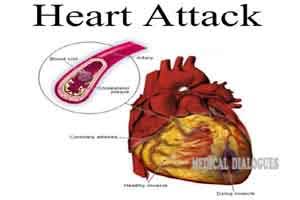- Home
- Editorial
- News
- Practice Guidelines
- Anesthesiology Guidelines
- Cancer Guidelines
- Cardiac Sciences Guidelines
- Critical Care Guidelines
- Dentistry Guidelines
- Dermatology Guidelines
- Diabetes and Endo Guidelines
- Diagnostics Guidelines
- ENT Guidelines
- Featured Practice Guidelines
- Gastroenterology Guidelines
- Geriatrics Guidelines
- Medicine Guidelines
- Nephrology Guidelines
- Neurosciences Guidelines
- Obs and Gynae Guidelines
- Ophthalmology Guidelines
- Orthopaedics Guidelines
- Paediatrics Guidelines
- Psychiatry Guidelines
- Pulmonology Guidelines
- Radiology Guidelines
- Surgery Guidelines
- Urology Guidelines
Adherence to High-Intensity Statin Drops-off For Many Following Heart Attack: JAMA

A substantial proportion of patients prescribed high-intensity statins following hospitalization for a heart attack did not continue taking this medication with high adherence at two years after discharge, according to a study published by JAMA Cardiology.
High-intensity statins are recommended following myocardial infarction (MI; heart attack). Robert S. Rosenson, M.D., of the Icahn School of Medicine at Mount Sinai, New York, and colleagues conducted a study that included Medicare beneficiaries ages 66 to 75 years (n = 29,932) and older than 75 years (n = 27,956) hospitalized for MI between 2007 and 2012 who filled a high-intensity statin prescription (atorvastatin, 40-80 mg, and rosuvastatin, 20-40 mg) within 30 days of discharge. Beneficiaries had Medicare fee-for-service coverage including pharmacy benefits.
At six months and two years after discharge among those 66 to 75 years of age, 59 percent and 42 percent were taking high-intensity statins with high adherence (a proportion of days covered of at least 80 percent), 8.7 percent and 13 percent down-titrated (switching to a low/moderate-intensity statin with a proportion of days covered of at least 80 percent), 17 percent and 19 percent had low adherence (a proportion of days covered less than 80 percent for any statin intensity without discontinuation), 12 percent and 19 percent discontinued their statin, respectively (not having a statin available to take in the last 60 days of each follow-up period).
The proportion taking high-intensity statins with high adherence increased between 2007 and 2012. African American and Hispanic patients and new high-intensity statin users were less likely to take high-intensity statins with high adherence, and those with dual Medicare/Medicaid coverage and more cardiologist visits after discharge and who participated in cardiac rehabilitation were more likely to take high-intensity statins with high adherence. Results were similar among beneficiaries older than 75 years of age.
“Lower medication costs, cardiologist visits, and cardiac rehabilitation may contribute to improving high intensity statin use and adherence after myocardial infarction,” the authors write.

Disclaimer: This site is primarily intended for healthcare professionals. Any content/information on this website does not replace the advice of medical and/or health professionals and should not be construed as medical/diagnostic advice/endorsement or prescription. Use of this site is subject to our terms of use, privacy policy, advertisement policy. © 2020 Minerva Medical Treatment Pvt Ltd